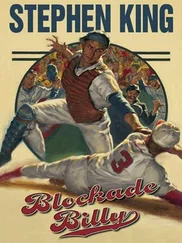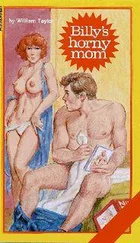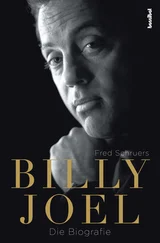William Ellis - Billy Sunday
Здесь есть возможность читать онлайн «William Ellis - Billy Sunday» — ознакомительный отрывок электронной книги совершенно бесплатно, а после прочтения отрывка купить полную версию. В некоторых случаях можно слушать аудио, скачать через торрент в формате fb2 и присутствует краткое содержание. Жанр: foreign_antique, foreign_prose, на английском языке. Описание произведения, (предисловие) а так же отзывы посетителей доступны на портале библиотеки ЛибКат.
- Название:Billy Sunday
- Автор:
- Жанр:
- Год:неизвестен
- ISBN:нет данных
- Рейтинг книги:3 / 5. Голосов: 1
-
Избранное:Добавить в избранное
- Отзывы:
-
Ваша оценка:
- 60
- 1
- 2
- 3
- 4
- 5
Billy Sunday: краткое содержание, описание и аннотация
Предлагаем к чтению аннотацию, описание, краткое содержание или предисловие (зависит от того, что написал сам автор книги «Billy Sunday»). Если вы не нашли необходимую информацию о книге — напишите в комментариях, мы постараемся отыскать её.
Billy Sunday — читать онлайн ознакомительный отрывок
Ниже представлен текст книги, разбитый по страницам. Система сохранения места последней прочитанной страницы, позволяет с удобством читать онлайн бесплатно книгу «Billy Sunday», без необходимости каждый раз заново искать на чём Вы остановились. Поставьте закладку, и сможете в любой момент перейти на страницу, на которой закончили чтение.
Интервал:
Закладка:
A level head, a quick eye, and a body which is such a finely trained instrument that it can meet all drafts upon it, is part of Sunday's inheritance from his life on the baseball diamond.
Most successful baseball players enter the major leagues by a succession of steps. With Sunday it was quite otherwise. Because he fell under the personal eye of "Pop" Anson he was borne directly from the fields of Marshalltown, Iowa, to the great park of the Chicago team. That was in 1883, when Sunday was not yet twenty-one years of age. His mind was still formative – a quality it retains to this day – and his entrance into the larger field of baseball trained him to think in broad terms. It widened his horizon and made him reasonably indifferent to the comments of the crowds.
A better equipment for the work he is doing could not have been found; for above all else Sunday "plays ball." While others discuss methods and bewail conditions he keeps the game going. Such a volume of criticism as no other evangelist, within the memory of living men, has ever received, has fallen harmless from his head, because he has not turned aside to argue with the umpire, but has "played ball."
There is no call for tears or heroics over the early experiences of Sunday. His life was normal; no different from that of tens of thousands of other American boys. He himself was in no wise a phenomenon. He was possessed of no special abilities or inclinations. He came to his preaching gift only after years of experience in Christian work. It is clear that a Divine Providence utilized the very ordinariness of his life and training to make him an ambassador to the common people.
CHAPTER III
A Base-Ball "Star"
Don't get chesty over success. – Billy Sunday.
Sometimes the preacher tells his people what a great journalist he might have been, or what a successful business man, had he not entered the ministry; but usually his hearers never would have suspected it if he had not told them. Billy Sunday's eminence as a baseball player is not a shadow cast backward from his present pre-eminence. His success as a preacher has gained luster from his distinction as a baseball player, while his fame as a baseball player has been kept alive by his work as an evangelist.
All the world of baseball enthusiasts, a generation ago, knew Billy Sunday, the speediest base-runner and the most daring base-stealer in the whole fraternity. Wherever he goes today veteran devotees of the national game recall times they saw him play; and sporting periodicals and sporting pages of newspapers have been filled with reminiscences from baseball "fans," of the triumphs of the evangelist on the diamond.
A side light on the reality of his religion while engaged in professional baseball is thrown by the fact that sporting writers always speak of him with pride and loyalty, and his old baseball associates who still survive, go frequently to hear him preach. The baseball world thinks that he reflects distinction on the game.
Now baseball in Marshalltown and baseball in Chicago had not exactly the same standards. The recruit had to be drilled. He struck out the first thirteen times he went to bat. He never became a superior batter, but he could always throw straight and hard. At first he was inclined to take too many chances and his judgment was rather unsafe. One baseball writer has said that "Sunday probably caused more wide throws than any other player the game has ever known, because of his specialty of going down to first like a streak of greased electricity. When he hit the ball infielders yelled 'hurry it up.' The result was that they often threw them away." He was the acknowledged champion sprinter of the National League. This once led to a match race with Arlie Latham, who held like honors in the American League. Sunday won by fifteen feet.
Sunday was the sort of figure the bleachers liked. He was always eager – sometimes too eager – to "take a chance." What was a one-base hit for another man was usually good for two bases for him. His slides and stolen bases were adventures beloved of the "fans" – the spice of the game. He also was apt in retort to the comments from the bleachers, but always good-natured. The crowds liked him, even as did his team mates.
Sunday was a man's man, and so continues to this day. His tabernacle audiences resemble baseball crowds in the proportion of men present, more nearly than any other meetings of a religious nature that are regularly being held. Sunday spent five years on the old Chicago team, mostly playing right or center field. He was the first man in the history of baseball to circle the bases in fourteen seconds. He could run a hundred yards from a standing start in ten seconds flat. Speed had always been his one distinction. As a lad of thirteen, in the Fourth of July games at Ames, he won a prize of three dollars in a foot-race, a feat which he recalls with pleasure.
Speed is a phase of baseball that, being clear to all eyes, appeals to the bleachers. So it came about that Sunday was soon a baseball "hero," analogous to "Ty" Cobb or "Home-Run" Baker, or Christy Mathewson of our own day. He himself tells the story of one famous play, on the day after his conversion:
"That afternoon we played the old Detroit club. We were neck and neck for the championship. That club had Thompson, Richardson, Rowe, Dunlap, Hanlon and Bennett, and they could play ball.
"I was playing right field. Mike Kelly was catching and John G. Clarkson was pitching. He was as fine a pitcher as ever crawled into a uniform. There are some pitchers today, O'Toole, Bender, Wood, Mathewson, Johnson, Marquard, but I do not believe any one of them stood in the class with Clarkson.
"Cigarettes put him on the bum. When he'd taken a bath the water would be stained with nicotine.
"We had two men out and they had a man on second and one on third and Bennett, their old catcher, was at bat. Charley had three balls and two strikes on him. Charley couldn't hit a high ball: but he could kill them when they went about his knee.
"I hollered to Clarkson and said: 'One more and we got 'em.'
"You know every pitcher puts a hole in the ground where he puts his foot when he is pitching. John stuck his foot in the hole and he went clean to the ground. Oh, he could make 'em dance. He could throw overhanded, and the ball would go down and up like that. He is the only man on earth I have seen do that. That ball would go by so fast that the batter could feel the thermometer drop two degrees as she whizzed by. John went clean down, and as he went to throw the ball his right foot slipped and the ball went low instead of high.
"I saw Charley swing hard and heard the bat hit the ball with a terrific boom. Bennett had smashed the ball on the nose. I saw the ball rise in the air and knew that it was going clear over my head.
"I could judge within ten feet of where the ball would light. I turned my back to the ball and ran.
"The field was crowded with people and I yelled, 'Stand back!' and that crowd opened as the Red Sea opened for the rod of Moses. I ran on, and as I ran I made a prayer; it wasn't theological, either, I tell you that. I said, 'God, if you ever helped mortal man, help me to get that ball, and you haven't very much time to make up your mind, either.' I ran and jumped over the bench and stopped.
"I thought I was close enough to catch it. I looked back and saw it was going over my head and I jumped and shoved out my left hand and the ball hit it and stuck. At the rate I was going the momentum carried me on and I fell under the feet of a team of horses. I jumped up with the ball in my hand. Up came Tom Johnson. Tom used to be mayor of Cleveland. He's dead now.
"'Here is $10, Bill. Buy yourself the best hat in Chicago. That catch won me $1,500. Tomorrow go and buy yourself the best suit of clothes you can find in Chicago.'
Читать дальшеИнтервал:
Закладка:
Похожие книги на «Billy Sunday»
Представляем Вашему вниманию похожие книги на «Billy Sunday» списком для выбора. Мы отобрали схожую по названию и смыслу литературу в надежде предоставить читателям больше вариантов отыскать новые, интересные, ещё непрочитанные произведения.
Обсуждение, отзывы о книге «Billy Sunday» и просто собственные мнения читателей. Оставьте ваши комментарии, напишите, что Вы думаете о произведении, его смысле или главных героях. Укажите что конкретно понравилось, а что нет, и почему Вы так считаете.












